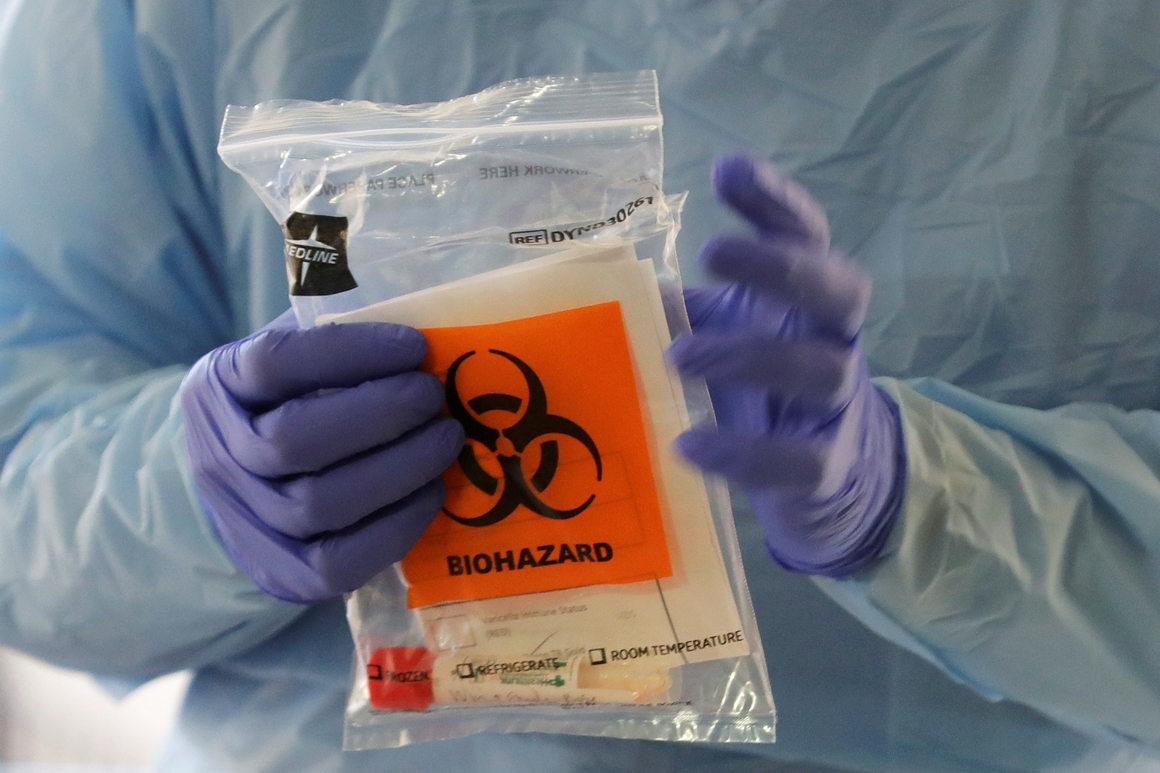
The materials in question include swabs that medical workers use to collect samples of patients’ phlegm and saliva for testing, and disposable plastic tips for the pipettes that lab technicians use to transfer liquids. Testing labs say they’re also concerned about the availability of personal protective equipment for their staff.
Fears about securing these basic supplies are the latest concern for public health officials as they scramble to institute the widespread testing that is desperately needed to track the spread of the coronavirus and limit the growing U.S. outbreak. The pace of U.S. testing has been slowed by shortages of critical materials used to prep patient samples for analysis and problems with an early test developed by the CDC.
Now, the contrast between the administration’s public and private messaging on its plan to expand testing is rankling U.S. labs.
The Trump administration announced Friday that it is creating a national network of 2,000 high-volume testing sites, with each processing 2,000 to 4,000 samples a day by the end of this week.
To help reach that expanded testing goal, the Food and Drug Administration said Sunday that public health labs no longer have to send coronavirus samples to the CDC to be confirmed. That should reduce the wait for test results and the number of tests conducted for each patient, said FDA Commissioner Stephen Hahn on Twitter.
The FDA also recently approved the use of more types of cotton swabs and of high-volume testing systems manufactured by Roche and Thermo Fisher. About 122 of of the Roche testing machines are installed at U.S. labs, the investment bank SVB Leerink said Monday, while Thermo Fisher said it is shipping its equipment to about 200 labs. And companies such as Qiagen, Quidel, Hologic and Cepheid are developing their own high-volume testing systems.
But the commercial labs that are now performing the bulk of the country’s coronavirus tests say they need help from the government to secure sufficient numbers of swabs and other low-tech equipment.
“We need the continued commitment from HHS and the administration to work with us to maintain the necessary volume of supplies,” Tom Sparkman, senior vice president of government affairs and policy at the American Clinical Laboratory Association, told POLITICO.
Source: politico.com
See more here: news365.stream






